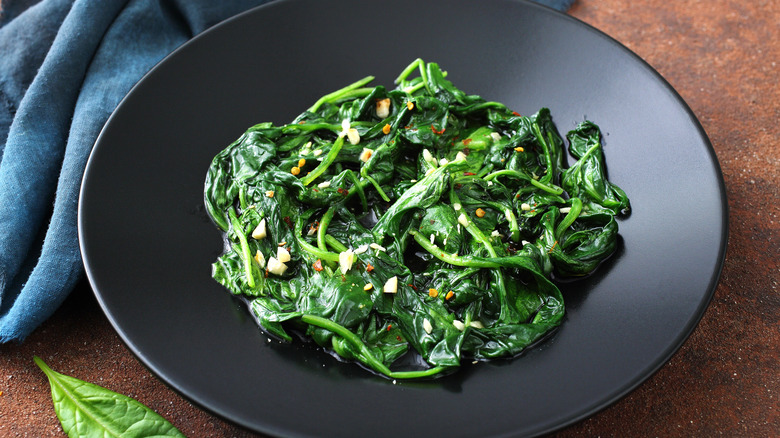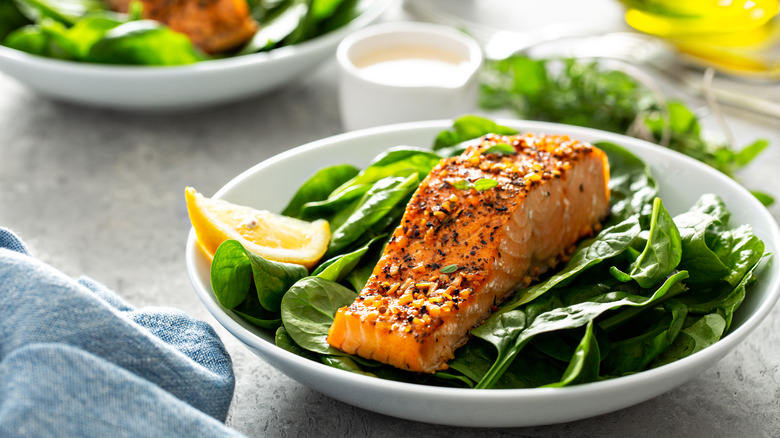This Is Why Spinach Shrinks When You Cook It
Have you ever thrown a handful of spinach onto the stove, only to see it compress into what seems to look like two leaves? This is a universal experience that we've all faced before, and the reason for this shrinkage can be explained by science. Spinach leaves contain lots of moisture, which explains why the bag you purchase at the grocery store is so puffy and full. However, Answers claims this liquid is lost when the spinach is heated, making the leaves softer and thus more compact.
Now, it's entirely up to you whether you prefer to eat your spinach raw or cooked. Raw spinach can be great in salads, but you might want to cook your spinach if you're going to enjoy a vegetable omelet or a creamed spinach dish. Either way, it might be reassuring for you to know that cooked and raw spinach have similar macronutrient values, according to Livestrong. So don't worry too much if your spinach shrinks in your pot; it still has lots of protein and fiber that keeps you satisfied and full.
Does spinach lose its nutritional value when cooked?
Spinach is an excellent source of iron, magnesium, potassium, and Vitamins A, B, C, and K. However, does it lose any nutritional value when cooked? The answer is both yes and no. SF Gate notes that spinach loses Vitamin C when it is sauteed, which is absorbed by the moisture that is then evaporated. This vitamin is responsible for the repair and upkeep of healthy skin and cells (via WebMD). However, cooked spinach's iron and calcium content is boosted when boiled, according to Consumer Reports.
Lots of vegetables are reported to be more nutritious cooked, while others are supposedly better raw. One general benefit of cooked food is it's easier to chew and leads to less bloating, but raw vegetables retain enzymes that help you digest food (via Healthline). However, you really can't go wrong with either heated or fresh spinach — the former is equally as good for you as the latter.

